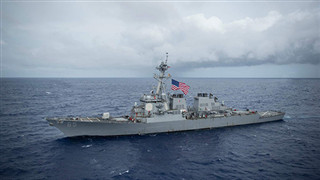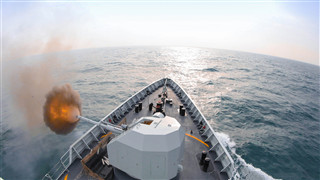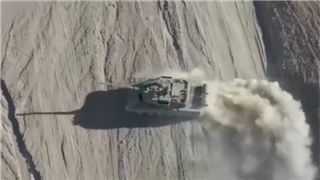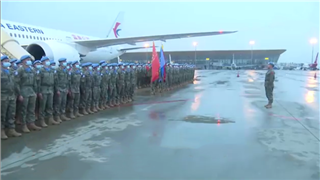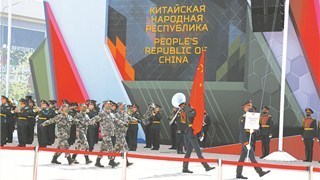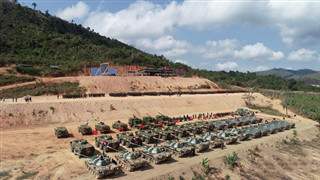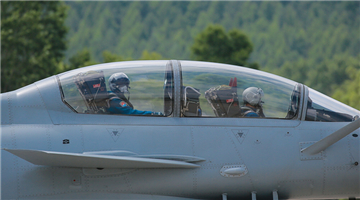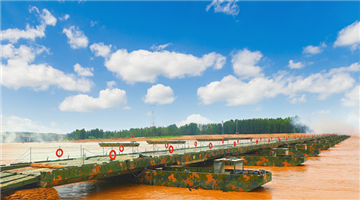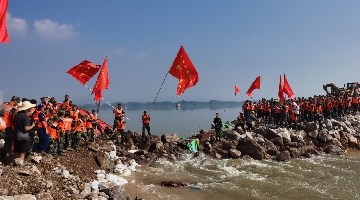By Hu Bo
There are two massive exercises in waters near Australia in July. One is the Pacific Vanguard 2021 maritime exercise from July 5 to 10 involving the US, Japan, Australia and ROK, and the other is the Exercise Talisman Sabre 2021 lasting from July 14 to 31, participated by the seven countries of the US, the UK, Japan, Australia, Canada, ROK and New Zealand.
These are routine exercises, but their contents have obviously become more targeted at China. Australia in particular, the host country of both exercises, has been making aggressive remarks on Taiwan-related topics recently, and its Prime Minister Scott Morrison even announced shortly before that once war broke out in the Taiwan Strait, Canberra would fulfill its commitment to assisting the US and its Indo-Pacific allies. Why does Australia keep making war provocations?
On the one hand, Australia has squeezed its space of choice amid the aggravating strategic competition between China and the US. The US-Australia alliance is the cornerstone of Australia’s military security strategy, and the two countries share similar values, long experience of “fighting shoulder to shoulder”, and mutual demand for strategic interests. Therefore, following Washington’s lead is Canberra’s strategic choice in the long term.
Besides, as the “southern anchor” of America’s “Indo-Pacific Strategy”, Australia attempts to play the role of a “deputy chief ” and expand its influence by reinforcing its alliance with the US. That’s why after World War II, especially after the end of the Cold War, Canberra has been standing firmly by Washington on almost all international hotspot issues regardless of rights andor wrongs and even stepping up for it proactively.
Therefore, once anything happens in East Asia, Australia will most probably become the pivot of America’s military operations. Australia’s former Prime Minister Malcolm Fraser once said Australia was locked in the American system; once war broke out between the US and China, Australia would have no choice but join it. Moreover, the cost of its choice is not high in peacetime, so Canberra wouldn’t refuse to dash to the front line, pushed both by domestic and international pressure.
On the other hand, Australia feels extremely uncomfortable with a rising China. Without the necessary and full knowledge about China’s security strategy and intention, it chooses to believe America’s slanders and rhetoric that China’s rise means a growing security risk in the Asia-Pacific.
Meanwhile, Australia considers itself an important member of the American alliance system and the western world that bears responsibilities for maintaining the “rules-based international order ”. Many Australian politicians made the ridiculous claim that China may not seek expansion or hegemony today, but that doesn’t mean it won’t do that in the future. The deep-seated reason for such suspicion is Canberra’s wariness and disapproval of the Chinese system and its ingrained arrogance as a member of the West.
These two structural factors limit the interactions between China and Australia in military and security areas, and it’s unlikely for Canberra to change course any time soon given the constant discords and collisions between the two countries. Australia’s choice may be influenced by the US, but it’s more strongly influenced by the strategic perception of political elites in Canberra. If Australia doesn’t adjust its strategy and mindset first, China’s positive actions for the sake of neighborly friendliness won’t substantially change the current status of bilateral relations.
In fact, Australia has many choices in peacetime. As a third party to the China-US competition, it can serve as a buffer or a bridge of communication and play a constructive role in shaping China-US relations. But if it is determined to side with the US, even adding fuel to the flames of competition between the world’s two largest economies, it will find itself cornered on the forefront of China-US conflict, even confrontation.
(The author is director of the South China Sea Strategic Situation Probing Initiative )
Editor's note: This article is originally published on huanqiu.com, and is translated from Chinese into English and edited by the China Military Online. The information, ideas or opinions appearing in this article do not necessarily reflect the views of eng.chinamil.com.cn.
